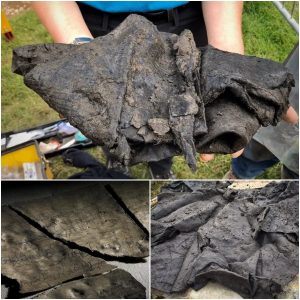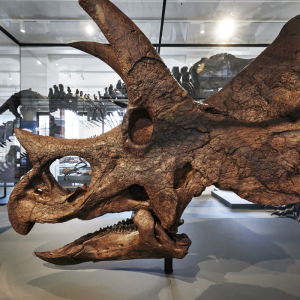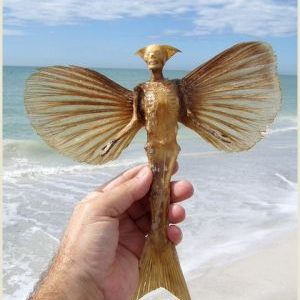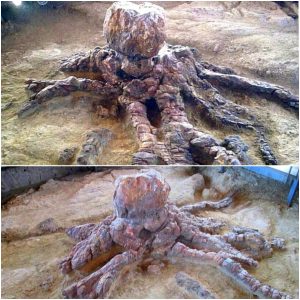“Hell Pigs” is a great name for a band though.
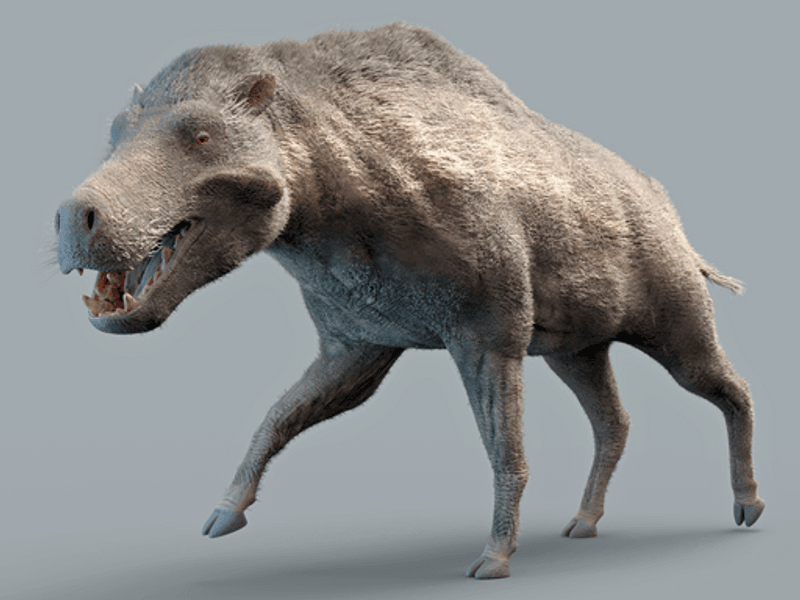
Dinosaurs might seem like the most monstrous-looking prehistoric animals, but best believe Mother Nature cooked up all sorts of other terrifying creatures. The example we’re bringing to you today is definitely one we wouldn’t fancy seeing up close – plenty of distance and a pair of binoculars would do just fine. It’s time to meet the hell pigs.
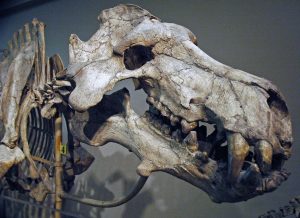
What are hell pigs?
“Hell pigs” aren’t just one species – the term refers to a number of species belonging to the scientific family Entelodontidae. Despite the nickname, they aren’t actually pigs either. True pigs belong to a separate family known as Suidae; hell pigs are simply pig-like in appearance. In fact, recent research has even suggested that hell pigs may have been more closely related to hippos and cetaceans than true pigs.
The now-extinct entelodonts are thought to have lived between 38 million years ago to 19 million years ago, with fossil evidence suggesting they could be found across the Northern Hemisphere. Whilst we know roughly when the group went extinct, why they did so remains unknown.
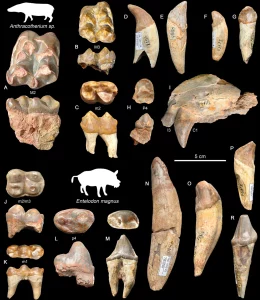
What did they look like?
If we’re going to be polite, hell pigs weren’t the most friendly-looking creatures – and they probably didn’t even look that much like pigs. One of their key characteristics was a large skull with a long facial part; species in the genus Daedon had skulls that were around 90 centimeters (35 inches) long. Entelodonts also had bony outgrowths from their lower jaws, and inside their mouth, large incisors and canines – much like those seen in modern carnivores.
Some of them were also terrifyingly huge. Daedon, for example, was estimated to have weighed a whopping 900 kilograms (1,984 pounds). That’s the same as some of the chonkiest brown bears, which suddenly seem much more friend-shaped when compared to an entelodont.
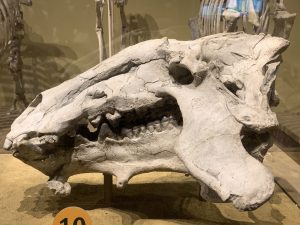
Some members of the group were a fair bit smaller, which might have helped to tone down the “I am the stuff of nightmares” vibes given off by the animals. However, the smallest hell pigs were still around 150 kilograms (331 pounds), so we wouldn’t necessarily count on that.
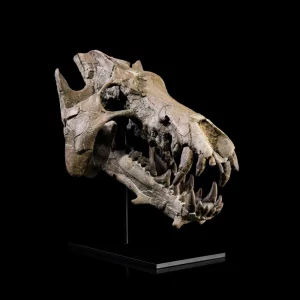
Were they actually hellish?
Whilst they might give off the appearance of a ruthless carnivore, research suggests that may not have been the case. Although previous studies had suggested that entelodonts were opportunistic hunters of large herbivores, and had teeth designed to crush bones – like hyenas – research published earlier this year contradicts that theory.
The study examined the microwear pattern on the teeth of Entelodon magnus, a species primarily found in Europe. The pattern revealed an omnivorous diet similar to that of wild boars; they may have fed on roots and fruit, but also possibly scavenged for meat.
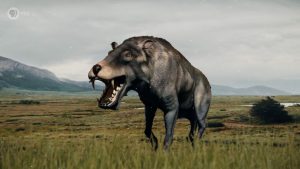
That doesn’t mean they couldn’t get nasty when needed though. Analysis of entelodont skulls found evidence of healed bite marks that were likely made by other entelodonts, suggesting that they may have engaged in combat with each other over things like territory or food.
On the whole, it seems they may not be quite as hellish as their name might imply – but if any of you are thinking of pulling a Jurassic Park on the hell pigs, we’d still rather you didn’t.
